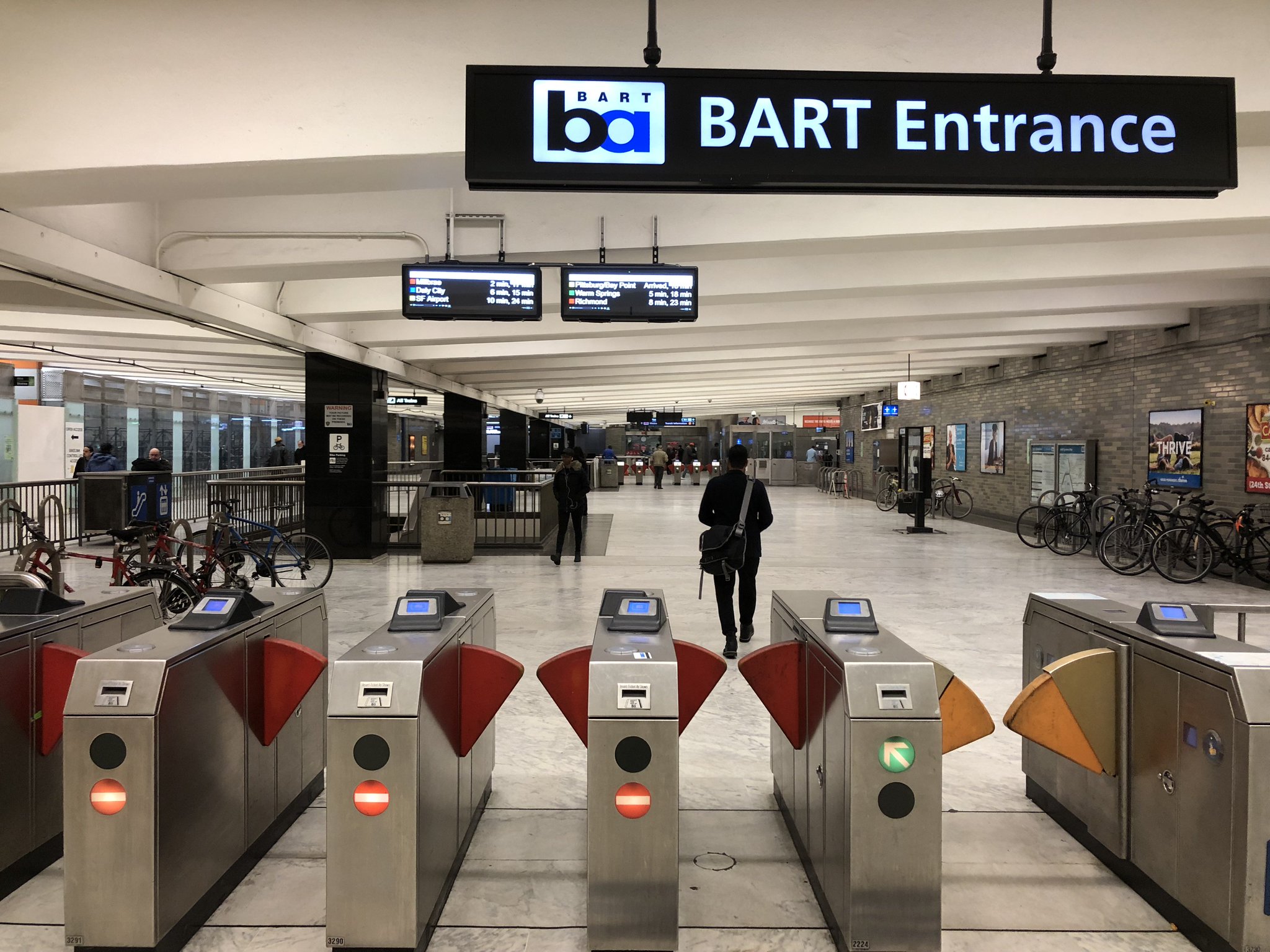After implementing a proof of payment program last March, BART continues seeking measures to tackle fare evasion. The San Francisco Bay Area’ rapid transport operator is now considering replacing its waist high doors for full height gates. The objective is to discourage people from trespassing fare gates without a valid ticket.
22,000 people skip the fare each day at BART. People jump over gates, piggyback behind other passengers, climb under the barriers or force them open. Consequently, fare evasion costs the transport agency $25 million annually.
Money constraint for full height gates
Deploying full height gates at BART’s network has a main obstacle: funding. Replacing the current 600 waist high barriers system-wide could cost $150 to $200 million. Thus, it would take around 8 years for a return on investments.
BART’s fare enforcement team is conducting a study to determine available modification options. According to BART spokesperson Anna Duckworth, this analysis is just “the beginning of a very long process”. The team will present the results to the board of directors before spring 2019. Then, the board will decide whether to go forward with the project or not.
A wider fare reduction and safety plan
Replacing the gates is just one of BART’s actions to reduce fare evasion and increase safety in stations. On March, the transport agency implemented a proof of payment program that fines fare dodgers with $75 —$55 for minors—. This program costs $740,000 per year in salaries for fare-inspection officers and their equipment.
In addition, BART is considering investing $28 million more for a new safety and security plan. This measure arises after the three brutal incidents occurred this summer in the San Francisco Bay Area network.
The operator wants to increase staff in stations. The BART Police Department has temporarily cancelled officers’ days off in early August. Patrol officers, community service officers and dispatchers work six 10-hour days each week. “It immediately boosts the visible presence of law enforcement throughout the system” states BART’s general manager, Grace Crunican. Also, BART could hire ten new fare inspectors for 3:30pm. to 1:30 am shifts.
Other measures include installing new surveillance cameras, video screens showing real-time station images placed at station entrances, new platform emergency call boxes or banning panhandling.



